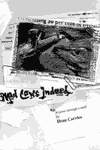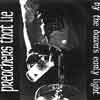John Steinbeck, "A Russian Journal"
Steinbeck always concentrated on the nature, plight, and struggle of ordinary people not born into wealth and privilege, with the exception of �The Short Reign of Pippin IV,� which didn�t really work, and �The Acts of King Arthur and his Noble Knights,� which I haven�t read.
Even when he was writing propaganda for the Air Force during WWII, he wrote about the individuals involved, dedicating few-to-no pages about the military itself. But after garnering considerable criticism over �The Grapes of Wrath,� and becoming more disillusioned with the nature of governments and the military complex, Steinbeck took it on the lam and wrote travel journals, the first being �The Log from the Sea of Cortez.� This, as far as I can tell, was the second of such journals.
Steinbeck was fortunate in regards to having just written �The Grapes of Wrath,� for without it and the uproar it caused, he would have never been allowed into the Soviet Union at a time when Cold War pressure was running high. Russian officials had misinterpreted the novel as being, One: true, and Two: anti-capitalistic. They thought by letting him in to tour the country, he might start to write about the virtues of communism.
But Steinbeck was determined not to be influenced by political parties, instead insisting he just wanted to meet and talk with the public � no military officials, no members of the government, not even those of the well-to-do set. In a span just under two months he lived with average Russian people, worked with them, ate, danced and drank with them.
It�s obvious what he was doing � he wanted to show the Russian people were just like us. They worked, raised families, had similar wants and worries, and they sometimes harbored irrational fears about Americans.
Hell, he could have ended it with �Can�t we all just get along?�
Besides the obviousness of this, there�s something that bothered me about this book. I think Steinbeck was dealing with half-truths. I think he played it safe by steadfastly avoiding political discussions. I think he was so sick of the commotion over charges of communistic sympathizing from The Grapes of Wrath that he intentionally paid special attention to how the trains DIDN�T run on time. Most of all, I think he clumsily walked a thin line trying not to offend either country.
All of these factors make a book that is easy and fairly interesting reading, but its incredibly hollow and flat in comparison to other works by him that I love so much.

